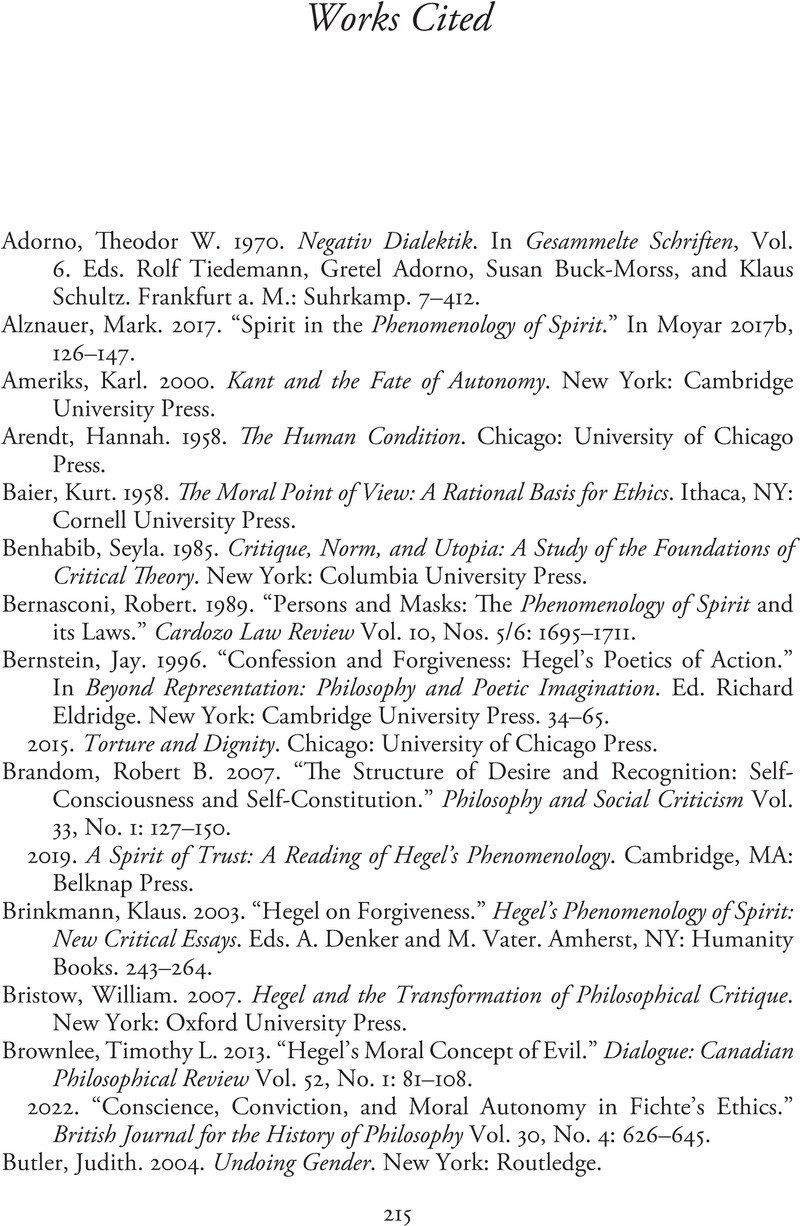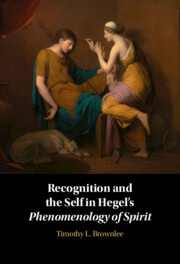Works Cited
Published online by Cambridge University Press: 01 December 2022
Summary

- Type
- Chapter
- Information
- Recognition and the Self in Hegel's Phenomenology of Spirit , pp. 215 - 223Publisher: Cambridge University PressPrint publication year: 2022

